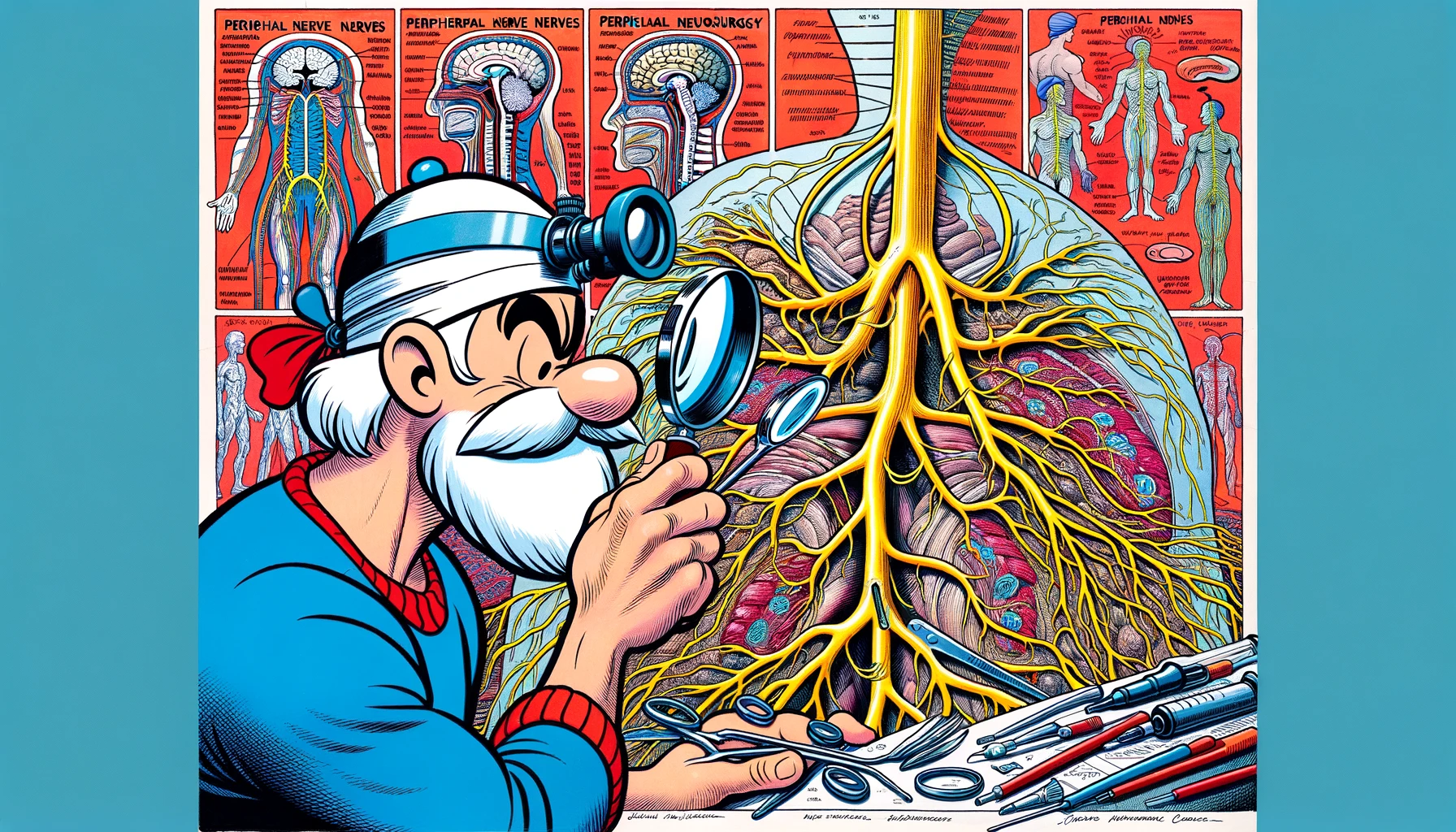Discover the intriguing case of unilateral abnormality in initial motor-evoked potentials in the upper limb during lumbar spine surgery, shedding light on the complexities of peripheral nerve neurosurgery.
– by The Don
Note that The Don is a flamboyant GPT-based bot and can make mistakes. Consider checking important information (e.g. using the DOI) before completely relying on it.
Unilateral abnormality of initial motor-evoked potential in the upper limb detected during lumbar spine surgery: a case report.
Phoowanakulchai et al., JA Clin Rep 2024
<!– DOI: 10.1186/s40981-024-00708-1 //–>
https://doi.org/10.1186/s40981-024-00708-1
We’ve got something huge here, folks, a real eye-opener in the world of spine surgery. Picture this: a 71-year-old man, a fighter, steps into the ring to tackle the numbness in his legs. No history of weakness, just a man ready to get better. He’s set for a lumbar spine surgery, a procedure that’s supposed to be straightforward. But then, boom, we hit a snag right after they position him prone.
His left hand, specifically the abductor pollicis brevis – that’s a muscle, by the way – starts showing signs that something’s off. The motor-evoked potentials (MEPs), which are like the body’s electrical signals, are coming in slow and weak. Now, you might think, “Is it the surgery? Is it the positioning?” But no, the team does their checks, and everything else looks good.
So, what’s the deal? Turns out, it’s carpal tunnel syndrome. Yes, you heard it right. The man had carpal tunnel syndrome in his left hand, and it was this, not the surgery or the positioning, that was causing the abnormal MEPs.
Let me tell you, folks, this is a game-changer. It shows us that even when we think we’ve got all our bases covered, there can be surprises. Surprises like carpal tunnel syndrome affecting the outcome of spine surgery. It’s a reminder, a big one, that we’ve got to look at the whole picture, not just the part we’re fixing.
So, remember, when you’re going into surgery, it’s not just about the spot you’re focusing on. It’s about the whole body. Because you never know what might pop up and surprise you. And in this case, a little surprise in the hand taught us all a big lesson. Always be prepared for the unexpected.
